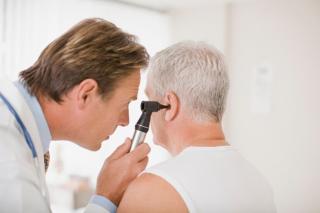The Dangers of Ear Infections and Hearing Aids

4 min read
Elite Hearing Centers of America Explains Ear Infections
Ear infections in adults aren't as common as those found in children, but at Elite Hearing Centers of America in FL, GA, WI, NC, and SC, we always caution patients about the potential of these from hearing aids. It doesn't happen frequently, but it can be a concern if proper cleaning and maintenance of the device are neglected. Whether dirty hearing aids or another health issue causes it, it's important to seek medical attention and learn how to prevent ear infections from being an ongoing problem if you wear them.Why Do Hearing Aids Cause Infections and Allergic Reactions?
Ear infections caused by hearing aids can occur when the devices aren't cleaned properly, and dirt and bacteria build up inside the ear canal. Regularly cleaning hearing aids is essential. As the devices sit in or behind your ears, the combination of oil, moisture, debris, and warmth becomes a breeding ground. Bacteria accumulate and fungal infections grow, which can lead to swelling of the Eustachian tubes.Outer Ear Infections
The area from the ear canal opening to the eardrum is considered the outer ear. Infections in this area are usually easier to treat. How do you get ear infections in this area? Hearing aid reactions and swimmer's ear are two common causes. Symptoms include:- Itching and redness in the ear canal
- Discomfort or pain
- A sense of feeling full in the ear
- Muffled hearing
Middle Ear Infections
Middle ear infections are common, and young children are the most susceptible. An infection caused by a hearing aid can spread from the outer to the middle ear if untreated. Middle ear symptoms are much more uncomfortable and include:- Earache
- Fever
- Fluid draining from the ear
- Hearing difficulty
Other Causes of Ear Infections
Not every ear infection is caused by hearing aids. Examining the spread of bacteria and fungi is the key to understanding what causes ear infections. Some of this could be passed on through a hearing aid or germs spread through cold and flu viruses. Others stem from swimming in dirty water, exposure to loud noises, or earwax buildup. Do ear infections go away on their own? Not usually. Even a slight allergic reaction that causes itchy or flaky skin on the outer ear might need some help healing. Treating ear infections might involve:- Antibiotics
- Pain medication
- Warm compresses
- Eardrops
- Topical creams
How to Clean Hearing Aids
Cleaning and maintenance should be done regularly to keep them in proper working order and to prevent infections and allergic reactions. Every device will have its recommended care and maintenance program from the manufacturer, and you should work with your hearing care provider to perform this. However, cleaning hearing aids daily at home, in addition to the manufacturer's guidelines, is necessary. Follow these tips:- Remove the earmold or dome from the device, then wipe down the entire hearing aid with a dry, soft cloth or a specialized cleaning wipe
- Use a soft-bristle brush (often provided with the aids) to clean the microphone ports gently
- Always ensure the devices are completely dry before reconnecting and using them
- Avoid using water or any liquid cleaners unless manufacturer instructions specifically state otherwise
- Regular maintenance can significantly decrease the risk of ear infections
Can an Ear Infection Cause Hearing Loss?
Ear infection hearing loss is usually mild and only temporary. Once the infection is effectively fought off, ears should regain the same hearing ability as before the illness. If you wore hearing aids before, you should be able to continue to wear them again confidently. You may just need to stop wearing them until the infection heals. In a small percentage of cases, infections can be so severe that they damage the inner components of the ear, resulting in permanent hearing loss. Cases like this are why everyone should take ear infections seriously and seek attention from a hearing care professional at the first sign of an ear infection.How to Prevent Ear Infections
If you're worried about ear infections and hearing loss, there are steps you can take to prevent them by creating a clean and dry environment in your ears and protecting your hearing. These are some steps you can take to reduce the likelihood of an infection:- Ensure your hands are clean before handling your hearing aids
- Clean your hearing aids properly
- After swimming or showering, gently dry your ears
- Care for your health to build a robust immune system
- Avoid excessive noise
- Get regular check-ups from your hearing care professional
